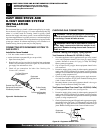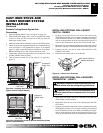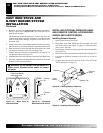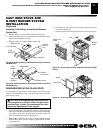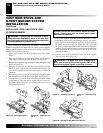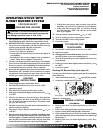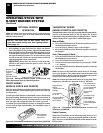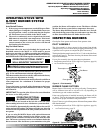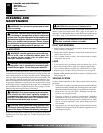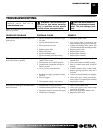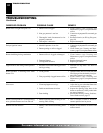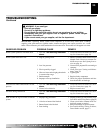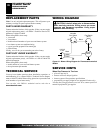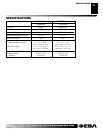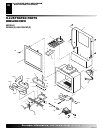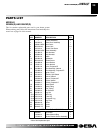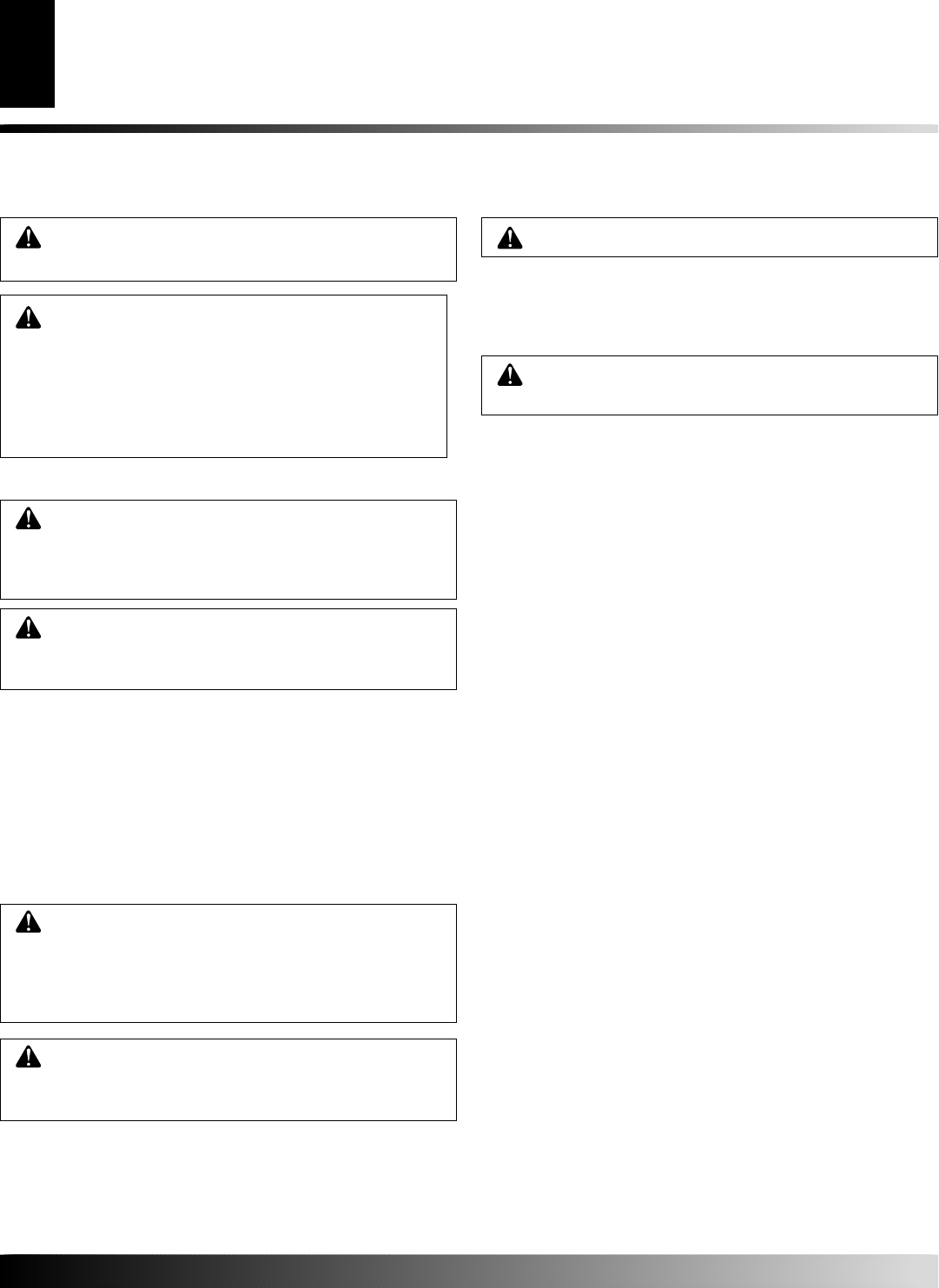
112127-01B
For more information, visit www.desatech.com
For more information, visit www.desatech.com
22
CLEANING AND
MAINTENANCE
WARNING: Turn off burner system and let cool
before cleaning.
CAUTION: You must keep control areas, burners,
and circulating air passageways of stove with burner
system clean. Inspect these areas of stove and burner
system before each use. Have burner system inspected
yearly by a qualified service person. Burner system
may need more frequent cleaning due to excessive lint
from carpeting, bedding material, pet hair, etc.
WARNING: Do not use abrasive cleaners as this may
damage glass. Use a non-abrasive household glass
cleaner to clean glass. Do not clean glass when hot.
WARNING: Handle glass door panel with care.
Do not strike, slam or otherwise abuse glass. Do
not operate burner system with the glass door
removed, cracked, or broken.
GLASS DOOR
Glass must be cleaned periodically. During start-up it is normal for
condensation to form on the inside of the glass causing lint, dust, and
other airborne particles to cling to the glass surface. During initial
start-up a slight film may form on the glass due to paint curing. The
glass should be cleaned several times with a non-ammonia, non-
abrasive household cleaner and warm water after the first two weeks
of operation. Thereafter, clean the glass two or three times during
each heating season, depending on the usage and circumstances
present. Refer to Removing/Replacing Glass Door on page 17 of this
manual when removing glass door for cleaning.
PILOT AND BURNERS
• Remove ember material before cleaning burners and replace
when cleaning is complete.
• Burner and controls should be cleaned with compressed air to
remove dust, dirt, or lint.
• Use a vacuum cleaner or small, soft bristled brush to remove
excess dust, dirt, or lint.
LOGS
• If you remove logs for cleaning, refer to Installing Logs, Lava
Rock, and Glowing Embers, page 18, to properly replace logs.
• Use a vacuum cleaner to remove any carbon build-up on logs.
• Replace log(s) if broken. See Replacement Parts on page 26.
• Replace ember material periodically as needed. See Replacement
Parts on page 26.
VENTING SYSTEM
Conduct annual inspection of the venting system following these
guidelines:
1. Check areas of venting system that are exposed to the weather for
corrosion (rust spots or streaks and, in extreme cases, holes). Have
these items replaced immediately by a qualified service person.
2. Remove the vent cap and shine a flashlight into the vent.
Remove any foreign material.
3. Check for evidence of excessive condensation. Continuous
condensation can cause corrosion of caps, pipes, and fittings
and can be caused by having excessive lateral runs, too many
elbows, or exterior portions of the system being exposed to
cold weather.
4. Inspect joints to verify that no pipe section or fitting has been
disturbed and loosened. Check mechanical supports such as
wall straps for rigidity.
WARNING: Only parts supplied by the manufac-
turer should be used when replacing broken or
damaged glass door panel (see
Replacement Parts
,
page 26). This glass door panel is a complete unit.
No substitute materials may be used.
If glass has been broken, carefully remove glass door (see Remov-
ing/Replacing Glass Door, page 17). Vacuum all glass pieces with
a shop vac.
CAUTION: Wear gloves and safety glasses while
handling or removing broken glass. Do not remove if
glass is hot. Keep children and pets away from glass.
WARNING: Do not operate burner system with the
glass door removed, cracked, or broken.
Use only the ceramic glass door replacement intended for this
burner system (see Replacement Parts, page 26 for details on
ordering). No substitutions may be made. See Removing/Replacing
Glass Door, page 17 for instructions for replacing glass door.
CAUTION: Do not vacuum if pieces are hot.
CLEANING AND MAINTENANCE
Glass Door
Pilot and Burners
Logs
Venting System



